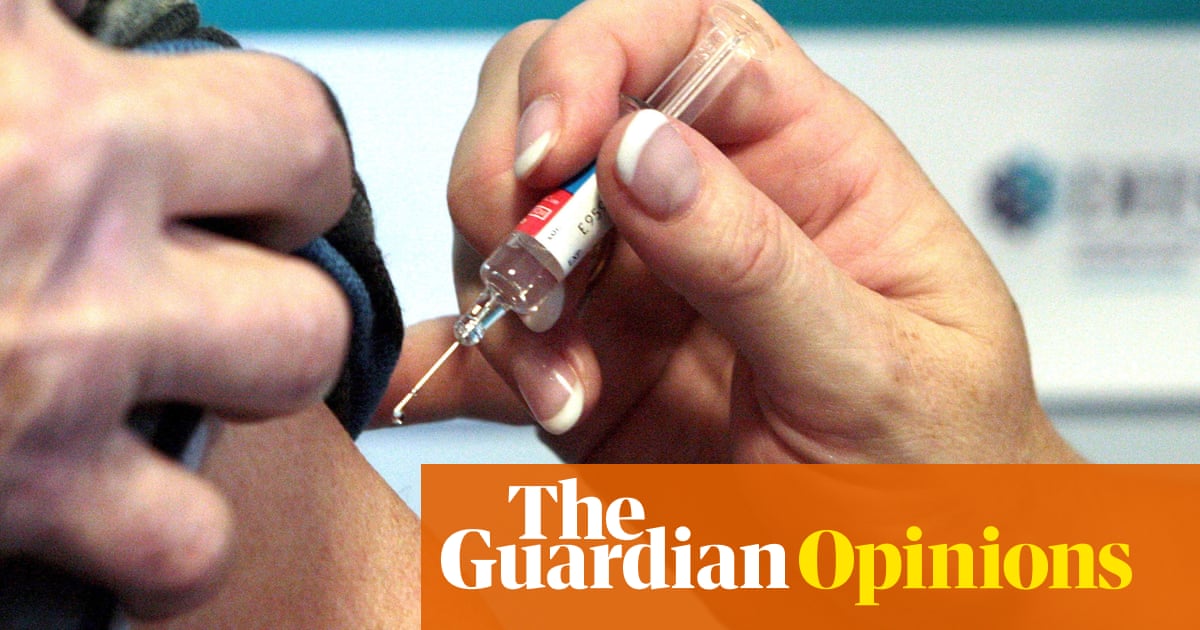
The first US Covid-19 vaccines are expected in clinics in mid-December, and states are drawing up plans for who should get vaccinated first.
But an important group is missing: children.
While two vaccines are expected to be released for use by adults in the US soon, testing is only now beginning in children – and only in adolescents. There are still many unknowns.
As an infectious disease pharmacist and professor who helps treat patients hospitalized with Covid-19, I regularly hear questions about vaccines. Here’s what we do and don’t know in response to some frequently asked questions about vaccinating children against Covid-19.
1. When can my child be vaccinated?
At this point, it seems unlikely that a vaccine for children will be ready before the start of the next school year in August.
Adult trials of the two main vaccines have shown promising results. On December 10, the U.S. Food and Drug Administration’s Vaccine Advisory Committee advised the FDA to approve Pfizer’s vaccine for use in people 16 and older, although there was some concern about including 16- and 17-year-olds without further ado data. The British government is already vaccinating people 16 and older with it, and Canada has approved the vaccine for the same age group.
But clinical trials involving children have only just begun.
Pfizer, in partnership with Germany’s BioNTech, didn’t extend its Covid-19 vaccine tests to children 12 and older until October. The other leading vaccine manufacturer, Moderna, announced on December 2 that it plans to begin Covid-19 vaccine trials in children 12-17 years old soon.
The efficacy and safety of the vaccine will need to be evaluated for each age group and testing has not yet begun for infants, toddlers or children in the US.
Clinical trials are designed to ensure that the vaccine is safe and effective. Typically, it takes 10 to 15 years from the start of development for the vaccine to be approved, but the Covid-19 vaccines are being developed more quickly in response to the pandemic.
2. Do children need more injections than adults?
It doesn’t appear that the schedule of doses of Covid-19 vaccines for children will be different, but that may change as testing progresses.
Pfizer’s vaccine is tested in adolescents with a series of two doses, three weeks apart, as in adults. Moderna also plans to use the adult schedule – two doses four weeks apart – in an upcoming study involving 3,000 adolescents.
The second dose serves as a “booster shot”, as the first dose alone does not provide optimal immunity. This is consistent with several other vaccines, including hepatitis B, measles, mumps and rubella.
At the moment, only those two doses are planned, but that may change. It is unclear how long the immune response from these Covid-19 vaccines will last or if more doses will be needed in the future. For example, the flu vaccine needs a new dose every year because the virus changes. Recent promising data from Moderna indicates that immunity lasts for at least three months after receiving the Covid-19 vaccine.
3. Are the vaccines safe for children?
So far no serious safety concerns have been identified with the Pfizer or Moderna vaccines, but trials for children are still in the early stages. Several other vaccines are also in development around the world, and a few drug manufacturers have begun trials with younger children in other countries.
Another concern is the temporary side effects.
In the UK, health officials warned on Dec. 9 that anyone with a history of anaphylaxis should not receive the vaccine after two adults had severe reactions.
Children tend to have stronger immune systems than adults, and they may have stronger transient reactions to the vaccine. This could mean more pain and swelling at the injection site for a few days and possibly a fever.
Those side effects are common with vaccines. They’re proof that the immune system is doing what it’s supposed to, but they can be scary.
Both the safety of the vaccine and the likelihood of transient side effects are important to understand, as adults and children need both doses to give the vaccine optimal immunity.
4. Is vaccination of adults sufficient?
Vaccinating adults alone would not be enough to end the pandemic. Children can still become infected, transmit the virus and develop complications. If no vaccine is available, children are likely to serve as a reservoir of the virus, making it more difficult to end the pandemic.
Both leading vaccines have so far reported promising results in adults: the efficacy is approximately 94% for the Moderna vaccine and 95% for the Pfizer vaccine. That means that under the best of circumstances, about 95% percent of adults who receive the vaccine are protected. That is higher than expected.
Whether the same is true for children remains to be seen.
Children typically have milder Covid-19 symptoms than adults, but they can still transmit the virus to others.
Receiving the vaccine has other benefits as well, including a safer return to schools and activities.
5. Should we continue to wear masks and distance ourselves socially?
In the meantime, it will be important to continue standard preventive measures, which include social distancing, wearing face masks, washing hands, and following other guidelines from the Centers for Disease Control and Prevention.
Although it is hoped that a vaccine will allow people to return to a more ‘normal’ way of life, these preventive measures will still be necessary even after receiving the vaccine until more information is known about the degree of protection by the vaccine. .
There are still many unanswered questions. As time goes by, we have more answers.
-
Wesley Kufel is Clinical Assistant Professor of Pharmacy Practice at Binghamton University, SUNY
-
This article has been republished by The Conversation, a nonprofit news organization dedicated to sharing ideas from academic experts